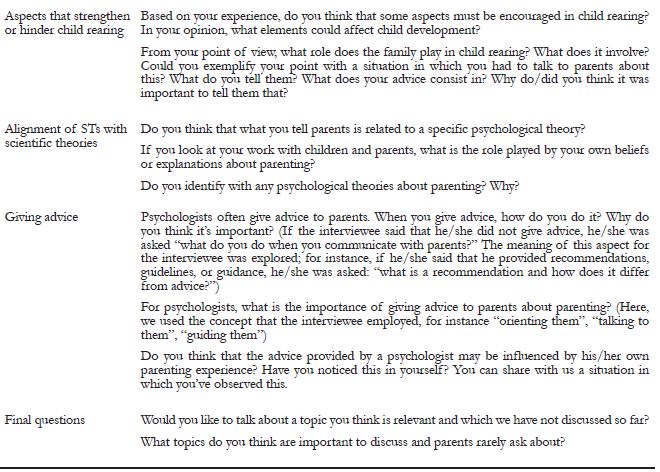
The key to helping your child succeed at school is to set high expectations and start early. Start by creating a positive atmosphere in the home. Encourage active learning and curiosity. This will help boost self-esteem. Your child will love school if you follow these guidelines. You'll also be more likely for them to succeed.
Encourage active learning
Active learning is an excellent way to get your child excited about school. Participation in games and activities is important for children. Children should also be able to share their learning with others. Talking about new concepts with children can help them develop their creativity and critical thinking skills. They should examine how new information affects the things they already have and how that information can be used in everyday life.
To encourage active learning, educators should be able understand each student's learning style. The Learning Pyramid can help you understand the differences. Activities that are closer to the base allow for more active thinking which in turn encourages higher retention. For example, preparing a presentation encourages active learning, since kids can think in depth and can even share their ideas with other family members.
Encourage self-advocacy
Children with disabilities often find it difficult to be their own advocate. It is crucial to teach children with disabilities how and when they can get help. Children need to be encouraged to advocate for themselves and their families. Self-advocacy is not a one-way street. Parents must provide the space and support their children in understanding their needs so they can advocate for themselves.

Parents can encourage self advocacy in their children by playing out hypothetical situations. Parents could play the role of a teacher and child, or vice versa. Parents can play the roles of the child and the teacher, and can also help their child by giving examples of successful advocacy.
Encourage curiosity
It is crucial to encourage curiosity in your child as a parent. If your child is asking you questions, it is important to resist the temptation of giving the answer right away. Instead, ask them questions and let them think about it before you give an answer. This will encourage perseverance and help to increase intellectual curiosity. Your child can also be encouraged to explore new ideas and experiences.
Children who are curious and open-minded are less likely than others to be self-absorbed. They also have a greater awareness of the world around their lives. They don’t consider themselves the center and only one thing in the universe. These curious children can become creative and successful adults. They are able to solve problems by themselves or collaborate with others to learn about the world.
Increase self-esteem
Recognizing your child's strengths and celebrating them is one of the best things you can do for their self-esteem. Children are very sensitive to feedback, so it is important to praise them when they do something well. Be careful not to praise their achievements too much. Instead, offer them honest, complimentary feedback.
You can also encourage your child to engage in activities that they are naturally skilled at to increase their self-esteem. This will build their self-confidence and help them to deal with failure.

Don't make excuses for poor performance
Instead of making excuses for your child's poor grades or report cards, try to understand why. Ask your child why homework isn't being completed or tests aren't getting taken. You can listen to your child and find a solution. Remind your child to not let grades define success.
Instead, get to know the teacher and school so that you can help your child resolve the problem before it gets worse. Sometimes, teachers can provide insight and help to identify learning disabilities.
FAQ
What should first mothers know?
First-time mothers need to realize how much they still have to learn. They must realize that they do not have to be alone in this journey.
There have been many other women who have gone before you. These women have learned from their mistakes.
They will find support and encouragement from these ladies.
They will also feel less isolated as they move into motherhood.
Is permissive parenting good?
They don't have to be passive parents, but they should understand that children learn from both the positive and negative experiences. They also have to be willing to accept responsibility for what happens when they don't discipline their kids properly.
They should be prepared to act if their child does not behave.
Being a parent is your best job. You should set boundaries and then enforce them. You must be consistent.
These rules are essential if you want to raise well-adjusted, respectful adults.
Which parenting style do you think is most appropriate in America today?
The traditional family isn't as popular today than it was 50 year ago, because of changes in families. Parents have become less involved in raising children. They are looking to spend more time with themselves than their children. This is called helicopter parenting. It's when parents hover over their kids 24/7. They don't let them do anything without supervision. They make sure their children eat right, exercise properly, get to sleep at night, and so on. This kind of parenting can cause stress for both parents and children. Both parents and children feel guilty about not being around for their childhood experiences.
This parenting style doesn't teach children how to take good care of themselves. This kind of parenting encourages children to rely upon adults for everything. Instead of teaching independence, parents are teaching dependence. They show their children that success is dependent on adult help. They can blame themselves if they fail.
This can lead to children feeling worthless and inadequate. They feel they are failing because they haven't lived up to their potential. They also lack self-confidence, as they were not taught how they can deal with failure.
Another reason why this type of parenting isn't so popular anymore is that there are fewer two-parent households. Both parents working outside the home makes it more difficult for them and their kids to be present. So many parents end up raising their kids alone.
Parents want happy, healthy children. They don’t want to worry about whether their kids get enough sleep, eat well, and exercise. They want to live their own lives. That's why they hire nannies, tutors, and other caregivers to watch after their kids.
They don’t want to manage every aspect their child’s life. They don't want to teach their children that mistakes are inevitable. They want them learn from their mistakes and to try again.
Why do some children disregard their parents' instructions and not follow their lead?
Children are naturally curious, and they want to learn from other children. They also have an innate desire to please adults and avoid punishment. However, they may lack self-discipline if they don't know why they should comply with certain rules.
Children should understand why rules are important and the consequences for breaking them.
They should also understand that following rules doesn't mean they must give up their freedom. They will be happy and safe.
This will make it easier for them to grasp.
These are some ways to teach your kids how to be better parents.
-
Describe to them the reason behind the rules.
-
Teach them consequences.
-
Encourage them to practice self-control
-
Have fun.
-
Don't expect perfection.
-
Encourage them to ask questions.
-
You should be praised for your effort and not just your results.
Are the teenage years difficult for parents?
Teenagers can often be difficult to manage. They may also rebel against parents authority.
Teenagers still need guidance and love, just as other ages. It's important that teenagers learn to take ownership of their decisions.
They need some time for themselves, without supervision, but not too many freedoms. They should know when to ask for assistance.
Teenagers are often very independent and self sufficient by their nature. They do need your support, however.
Teens must feel loved by their parents and be taken care of. Teens must look up to their parents as role-models and be able to set good examples.
Teens need to know why certain rules exist. Teens should not smoke cigarettes or consume alcohol.
Parents should teach their children right from wrong. They must also inform their children about the consequences for breaking these rules.
Parents must also demonstrate respect for their children's opinions. Respecting their opinions means listening to them.
It means being open to compromise.
Teenagers sometimes rebel and become angry. But it's not always bad. They're actually growing up.
Teens will often act out when they want to express something deep within.
They might feel confused or frustrated. They may also have difficulty coping with life's changes.
It is crucial to understand your teen's feelings. Then, you can try to understand what is causing your teen's behavior.
The best way to address the problem is to first identify it.
What is positive parenting?
Positive parenting is a way to help children be happy and healthy adults. It teaches them how they can behave constructively towards others.
They teach children how they can deal with conflict and stress, how to resolve conflicts peacefully and how to deal with disappointment.
Children learn to be responsible and self-discipline through positive parenting. It teaches them how make decisions and solve problems by themselves.
It encourages them try new things and takes risks. They are taught to work hard and achieve success in their lives.
Statistics
- Most adults will become parents at some point in their lives (i.e., around 89.6% of the adult population worldwide; Ranjan, 2015). (positivepsychology.com)
- Students from authoritative families were likelier to say that their parents–not their peers–would influence their decisions (Bednar and Fisher 2003). (parentingscience.com)
External Links
How To
How to deal effectively with ADHD children
ADHD is a disorder that affects attention span, motor skills (impulsive control), and hyperactivity. ADHD symptoms include restlessness, impulsiveness and difficulty paying attention. They may also have trouble listening, difficulty listening, fidgeting, squirming, difficult talking, difficulty paying attention and trouble paying attention. ADHD children also have trouble sitting still and moving around too often. Sometimes they act without thinking and can get into trouble simply because they can't stop. ADHD diagnosis doesn't mean your child has to be stupid or lazy. Many ADHD individuals are extremely smart and successful.
ADHD children learn best when there are clear rules. Talk to your child's physician if you suspect ADHD. His doctor may recommend medication, including Ritalin (methylphenidate), Adderall(amphetamine), and Concerta (atomoxetine). Some doctors recommend counseling for parents and teachers, while others prefer medication alone.
If your child has been diagnosed with ADHD, he may benefit from a special education program. This school supports students with ADHD/learning disabilities. It provides individual instruction and therapy that will improve academic performance. You should also offer behavior management training to your child, which includes positive reinforcement techniques such as rewards and consequences.
To work with ADHD children, you don't need any special training. All you need is patience. Teaching your child patience is all that's required. It is important to try to understand your child's motivations. If your child seems to be losing interest in learning, you can ask him what his thoughts are. Your child can learn by having fun with TV and games.
Stress management can be made easier by teaching your child relaxation techniques and other stress-busting methods. Encourage him to take breaks during stressful situations. Help him learn how to cope with emotions and difficult feelings.
Your child will be more successful at school if you are patient. You can help him adapt to new environments and routines. Do not expect him to learn overnight. Give him lots of chances to master new tasks.